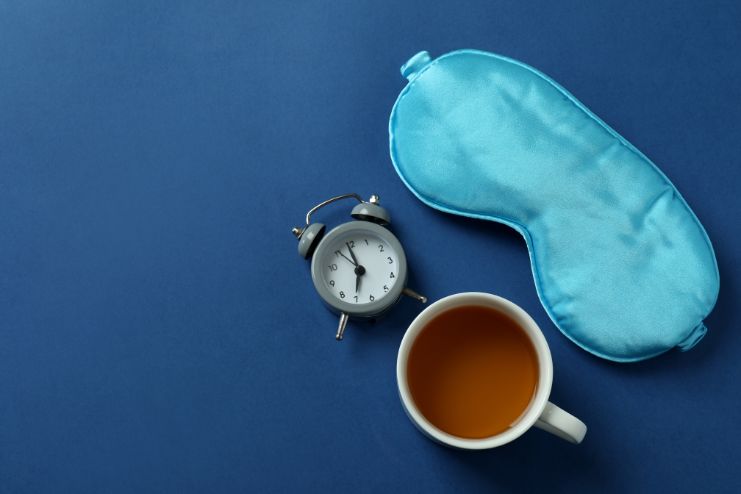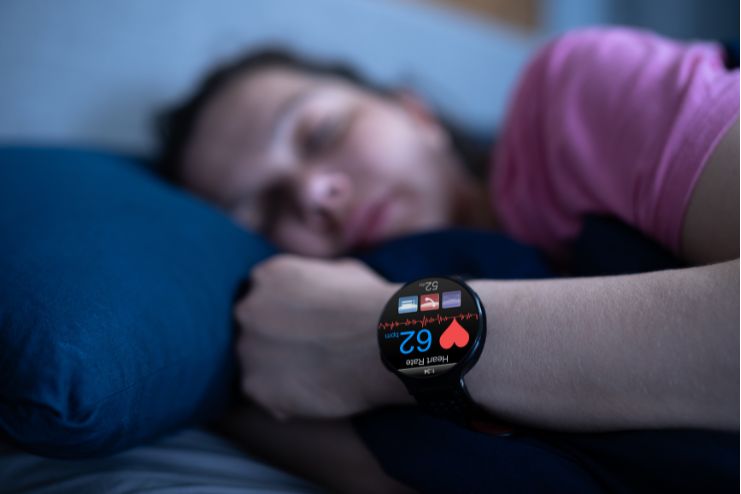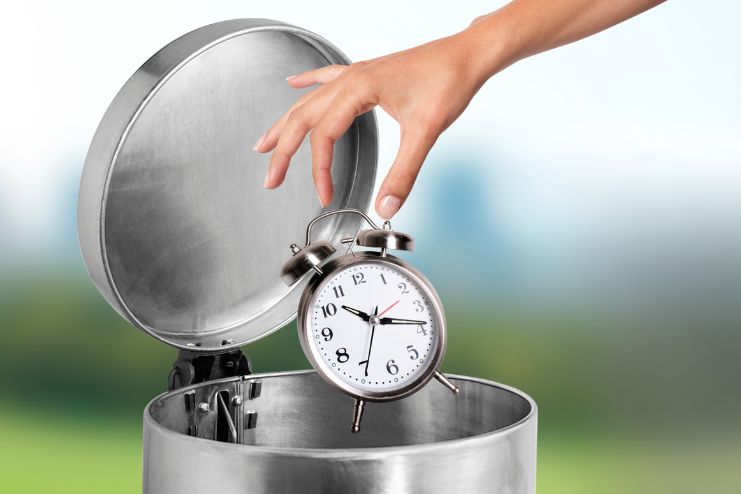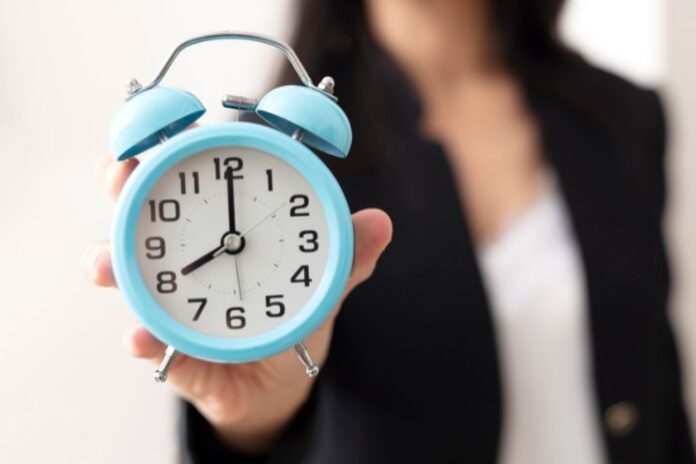Affiliate Disclaimer
Some links in this article are affiliate links. We may earn a small commission if you make a purchase through these links, at no extra cost to you. We only recommend products we find useful to our readersIs the belief that everyone needs exactly 8 hours of sleep each night a myth? Sleep requirements vary among individuals and are influenced by age, lifestyle, and overall health.
While many adults thrive on 7–9 hours of sleep, some may feel refreshed with slightly less, and others might need more. Forcing oneself into a rigid 8-hour sleep schedule without considering personal needs can lead to unnecessary stress and may not improve sleep quality.
Understanding and respecting your unique sleep requirements is essential for optimal rest and well-being.
READ MORE: 8 Smart Home Devices to Enhance Your Sleep
The Origins of the 8-Hour Sleep Myth

Many people believe that getting exactly 8 hours of sleep is the gold standard for good health, but history and science tell a different story. Before the modern era, humans often slept in two separate phases, a pattern that changed with industrialization and the 9-to-5 work schedule.
Understanding the origins of this sleep myth can help us rethink what truly makes for restful, healthy sleep.
Historical Perspectives on Sleep
Before the industrial era, many societies practiced segmented, or biphasic, sleep patterns. People would sleep in two distinct phases during the night, separated by a period of wakefulness.
This interlude was often used for activities such as reading, praying, or socializing. Historian Roger Ekirch’s extensive research into historical sleep patterns suggests that biphasic sleep was the norm for centuries.
The shift to consolidated, uninterrupted sleep coincided with industrialization and the advent of artificial lighting, which extended daytime activities and altered natural sleep rhythms.
Influence of Modern Work Culture on the 8-Hour Sleep Recommendation
The standardization of the 8-hour workday during the Industrial Revolution led to a more regimented daily schedule. This structure promoted the idea of an 8-hour sleep period to complement 8 hours of work and 8 hours of leisure, embedding the notion of 8 hours of sleep as ideal.
Contemporary work cultures that glorify long working hours often downplay the importance of adequate sleep, leading to widespread sleep deprivation.
Public figures like Elon Musk have been known to promote a “hardcore” work ethic that minimizes sleep despite extensive research highlighting the detrimental effects of sleep deprivation on health and productivity.
Scientific Studies on Sleep Duration and Individual Variability
Modern sleep research indicates that the optimal amount of sleep varies among individuals and is influenced by factors such as age, genetics, lifestyle, and overall health.
While the National Sleep Foundation recommends 7 to 9 hours of sleep for adults, some individuals may function well with slightly less or require more.
Psychologist Hailey Meaklim emphasizes that there is no universal “one-size-fits-all” sleep duration, and individuals should focus on how they feel during the day to assess their sleep needs. Recognizing and respecting individual sleep requirements is crucial for optimal health and comfort.
READ NEXT: 7 Best Hypoallergenic Pillows for Healthier Sleep
How Sleep Needs Differ for Everyone

Understanding and respecting your unique sleep patterns can help improve overall well-being and daily performance. By recognizing your ideal sleep duration, you can make better lifestyle choices to enhance your rest and productivity.
Factors Affecting Sleep Duration
- Genetics and Chronotypes: Your internal body clock, or chronotype, determines whether you’re naturally an early bird or a night owl. Some people feel most alert in the morning, while others function better in the evening. Genetics plays a significant role in setting these sleep patterns, influencing how much sleep you need.
- Age Differences: Sleep needs change over a lifetime. Infants need up to 17 hours of sleep, while teenagers require around 9 hours. Adults generally function well with 7–9 hours, but older adults may experience lighter and more fragmented sleep. Understanding these variations helps determine your ideal sleep duration.
- Lifestyle Factors: Your daily habits, such as exercise, diet, and stress levels, influence how much sleep you need. High physical activity levels can increase the body’s demand for rest, while high stress or irregular routines can disrupt sleep quality.
- Health Conditions: Chronic illnesses, sleep disorders, and mental health issues can all affect your ideal sleep duration. Conditions like insomnia, sleep apnea, and chronic pain can make it harder to get restful sleep, requiring adjustments to sleep schedules.
Understanding Your Unique Sleep Requirement
- Finding Your Ideal Sleep Duration: The best way to determine how much sleep you need is by observing how you feel during the day. If you wake up refreshed and maintain good energy levels, you’re likely getting enough sleep.
- Signs of Too Much or Too Little Sleep: If you frequently feel groggy, irritable, or struggle to concentrate, you might not sleep enough. On the other hand, excessive sleep can sometimes signal underlying health issues, such as depression or a sleep disorder.
READ MORE: 7 Weighted Blankets for Better Sleep
The Risks of Following the 8-Hour Sleep Rule Blindly

While the widely accepted recommendation is to aim for 7–9 hours of sleep per night, strictly adhering to an 8-hour mandate without considering individual needs can lead to unintended consequences.
Sleep Anxiety: Stressing Over “Not Getting Enough” Can Worsen Sleep Quality
An intense focus on achieving a specific amount of sleep can lead to sleep anxiety—a condition where worrying about sleep disrupts the ability to fall or stay asleep.
This preoccupation can create a cycle where anxiety hinders sleep, leading to further stress about not sleeping enough. Physical symptoms such as rapid heart rate, sweating, and digestive issues may accompany this anxiety, further impeding restful sleep.
Instead of obsessing over a fixed number of hours, prioritizing relaxation and good sleep habits can improve overall sleep quality.
Oversleeping: How Too Much Sleep Can Be Just as Harmful as Too Little
While insufficient sleep is linked to various health issues, consistently sleeping more than 10 hours per day—known as oversleeping—can also have adverse effects.
Oversleeping risks include an increased likelihood of diabetes, heart disease, stroke, obesity, anxiety, and even higher mortality rates. It may also indicate underlying health problems such as sleep apnea or depression.
Symptoms of oversleeping include feeling unrefreshed upon waking, excessive daytime sleepiness, and difficulty waking up. Listening to your body’s natural signals and maintaining a balanced sleep schedule can help prevent these risks.
Sleep Debt vs. Sleep Efficiency: Why Quality Matters More Than Quantity
Sleep debt refers to the cumulative effect of not getting enough sleep, leading to impairments in cognitive and physical performance.
However, focusing solely on the quantity of sleep overlooks the importance of sleep efficiency—the quality of sleep obtained during the time spent in bed.
High sleep efficiency means spending a greater proportion of time in restorative sleep stages, leading to better overall restfulness.
Sleep debt recovery is possible but requires consistent, high-quality sleep rather than simply oversleeping on weekends. Instead of trying to “make up” lost sleep with excessive rest, it’s better to establish a healthy and sustainable sleep routine.
READ NEXT: 5 White Noise Machines for Tranquil Nights & Refreshed Mornings
How to Find Your Ideal Sleep Pattern

Discovering the right sleep routine for your body is essential for general health and welfare. Instead of following a one-size-fits-all approach, it’s important to track your sleep habits and adjust them based on how you feel.
Tracking and Adjusting Your Sleep Schedule
- Using Sleep Trackers and Wearable Devices: Modern tools like sleep trackers and wearable devices help monitor your sleep cycles, providing insights into sleep duration, quality, and disturbances. These gadgets can highlight patterns and help you make informed adjustments to your routine.
- Paying Attention to How You Feel Rather Than Clocking Hours: While tracking devices are helpful, the best indicator of quality sleep is how you feel. If you wake up refreshed and maintain good energy levels throughout the day, you’re likely getting the right amount of rest—regardless of whether it’s exactly 8 hours.
The Role of Sleep Cycles
- Why Completing Full Sleep Cycles (90-Minute Intervals) Matters More Than Hours: Sleep occurs in 90-minute sleep cycles, moving through light, deep, and REM sleep. Waking up in the middle of a cycle can leave you feeling groggy, whereas waking up at the end of a cycle helps you feel more refreshed—even if your total sleep duration is shorter. Using a sleep calculator or adjusting your bedtime based on these cycles can improve your overall rest.
Alternative Sleep Approaches
- Polyphasic Sleep vs. Monophasic Sleep: While most people follow a monophasic sleep pattern—one long sleep period per night—some adopt polyphasic sleep, which involves multiple sleep periods throughout the day. Though polyphasic sleep may work for certain lifestyles, such as night shift workers, it can disrupt natural sleep rhythms for many.
- Short Sleepers vs. Long Sleepers: How Some People Thrive on 5-6 Hours: Individual sleep needs vary due to genetics and lifestyle. Some people function well on just 5-6 hours of sleep, while others need 9 or more to feel rested. Identifying your natural sleep requirement can help you maximize your rest without forcing yourself into a rigid 8-hour rule.
READ MORE: Sleep Solutions for Everyone: Family-Friendly Tips
Optimizing Sleep for Quality, Not Just Quantity

Achieving restful sleep isn’t just about getting a specific number of hours each night. Sleep efficiency vs. quantity matters—meaning how well you sleep is just as important as how long you sleep.
By focusing on sleep quality improvement, you can wake up feeling more refreshed and energized.
Sleep Hygiene Tips
- Consistent Bedtime Routine and Avoiding Blue Light: Going to bed and waking up at the same time every day helps regulate your body’s internal clock, leading to better sleep efficiency. Avoiding blue light from screens before bed is also crucial, as it suppresses melatonin production and disrupts sleep.
- Nutrition and Lifestyle Habits That Promote Deep Sleep: A balanced diet and regular physical activity contribute to sleep quality improvement. On the other hand, exercising just before bed can be detrimental. Creating a quiet, dark, and cool sleeping environment also enhances deep sleep.
Aligning Sleep with Your Chronotype
- How Night Owls and Early Risers Should Adjust Their Routines: Your chronotype—whether you’re a night owl or an early riser—affects your ideal sleep pattern. Night owls may need to gradually shift their bedtime earlier for a healthier routine, while early risers should maintain a consistent schedule that allows them to get enough rest. Aligning sleep with your natural rhythm improves sleep efficiency vs. quantity.
The Role of Naps
- How Strategic Napping Can Improve Rest Without Disrupting Nighttime Sleep: Short naps (10-20 minutes) can boost alertness and energy without negatively affecting nighttime sleep. However, long or late-afternoon naps may reduce sleep efficiency by making it harder to fall asleep at night. People struggling with insomnia should limit naps to avoid worsening their condition.
READ MORE: The Importance of Sleep Hygiene
Final Thoughts

Everyone does not require precisely eight hours of sleep every night, as the conventional wisdom holds. Age, lifestyle, and general health are some of the variables that affect an individual’s sleep needs.
Focusing on how well you slept and how relaxed you feel when you get up is more useful than obsessing about a particular number.
By establishing a regular sleep schedule, making your sleeping space pleasant, and paying attention to your body’s cues, you may improve your quality of sleep without having to worry about following a rigid set of rules.
References
- https://www.linkedin.com/pulse/myth-8-hours-sleep-how-thrive-less-than-7-according-martin-soorjoo/
- https://www.medicalnewstoday.com/articles/medical-myths-how-much-sleep-do-we-need
- https://www.resmed.co.in/blogs/sleep-myths-that-can-harm-your-health
- https://shahalam.avisena.com.my/articles/is-needing-eight-hours-of-sleep-a-myth/
- https://www.today.com/health/sleep/is-8-hours-of-sleep-enough-rcna120635
- https://reachmd.com/news/experts-life-threatening-warning-to-people-getting-less-than-7-hours-sleep/2468311/
- https://www.bbc.com/news/magazine-16964783
- https://shahalam.avisena.com.my/articles/is-needing-eight-hours-of-sleep-a-myth/
- https://edition.cnn.com/2022/01/09/health/sleep-history-wellness-scn/index.html
- https://qz.com/quartzy/1476218/how-much-sleep-do-i-need-the-eight-hour-rule-is-a-myth
- https://www.sleepfoundation.org/how-sleep-works/how-is-sleep-different-for-men-and-women
- https://sleep.hms.harvard.edu/education-training/public-education/sleep-and-health-education-program/sleep-health-education-80
- https://my.clevelandclinic.org/health/body/12148-sleep-basics
- https://www.nhlbi.nih.gov/health/sleep/how-much-sleep
- https://drchandrilchugh.com/sleep/8-hour-sleep-rule/
- https://www.webmd.com/sleep-disorders/physical-side-effects-oversleeping
- https://my.clevelandclinic.org/health/diseases/21543-sleep-anxiety
- https://www.webmd.com/sleep-disorders/what-is-sleep-debt
- https://health.clevelandclinic.org/your-complete-guide-to-sleep
- https://sleepdoctor.com/sleep-calculator
- https://www.sleepfoundation.org/sleep-calculator
- https://www.cdc.gov/sleep/about/index.html
- https://www.mayoclinic.org/healthy-lifestyle/adult-health/in-depth/sleep/art-20048379
- https://pmc.ncbi.nlm.nih.gov/articles/PMC8304732/
- https://www.health.harvard.edu/newsletter_article/8-secrets-to-a-good-nights-sleep
In this Article




















